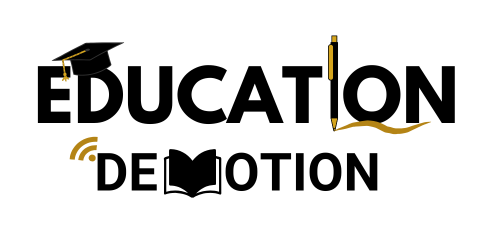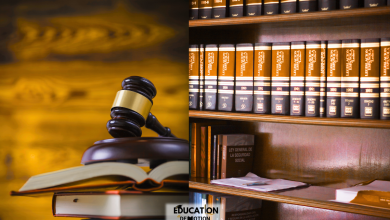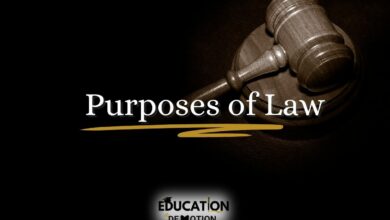
In recent years, the University of Metaphysical Sciences lawsuit update has attracted attention, not just for its educational programs but for legal matters that have stirred up public and professional interest. If you’re following the ongoing lawsuit involving UMS, you’re likely curious about recent updates, their implications, and what it all means for students and the metaphysical community.
This article will unpack the most current details regarding the University of Metaphysical Sciences lawsuit update, provide clarity, and address some key questions surrounding the case. While legal matters are often complex, we’ll ensure this overview is easy to follow and informative.
What Is the University of Metaphysical Sciences?
The University of Metaphysical Sciences is a recognized institution offering education in metaphysical studies, spiritual sciences, and holistic healing. From bachelor’s to doctorate programs, UMS equips students with the knowledge to explore topics like meditation, mindfulness, energy healing, and metaphysical philosophy.
The university has been popular among those seeking personal growth or professional accreditation in the metaphysical field. However, in recent years, its reputation has faced scrutiny due to an ongoing lawsuit that raises questions about its operations.
Why Is the University of Metaphysical Sciences in a Lawsuit?
The lawsuit stems from allegations questioning the university’s legitimacy, accreditation practices, and academic structure. Critics argue that certain aspects of UMS’s degree programs may not align with standard higher education requirements.
Opponents have raised concerns about whether UMS degrees hold weight in professional or academic fields. While UMS asserts its role as a valid educational institution, the lawsuit highlights a broader issue: the tension between alternative education systems and conventional academic standards.
Recent Updates on the Lawsuit
Court Proceedings and Key Arguments
In the most recent court hearings, both sides presented strong arguments. The plaintiffs alleged that UMS misrepresented its credentials, while the university maintained that it operates within the scope of metaphysical education a niche field outside traditional academia.
One major focus of the case is whether UMS’s degrees meet state and federal guidelines for higher education institutions. The defense argued that metaphysical sciences exist in a unique category, with different accreditation systems tailored to this specialized domain.
Public Reactions to the Lawsuit
The metaphysical community has responded with mixed emotions. Supporters of UMS believe the lawsuit undermines spiritual education, which often deviates from mainstream standards. Critics, on the other hand, feel the case highlights the need for transparency and accountability in alternative educational institutions.
Additionally, this legal battle has sparked discussions about whether alternative universities should adhere to conventional accreditation standards or establish independent guidelines.
What Does This Mean for UMS Students?
Students and alumni of UMS are understandably concerned about how the lawsuit may affect their degrees and professional credentials. It’s important to note that the outcome of this case could set a precedent for other institutions in the metaphysical sciences field.
While no immediate changes have been announced, potential outcomes include:
- Improved transparency: UMS may implement clearer policies on accreditation and course credentials.
- Reputational impact: Depending on the verdict, the university could either strengthen its reputation or face challenges in attracting future students.
- Industry-wide effects: The lawsuit might influence how metaphysical and spiritual universities operate in the future.
Understanding Accreditation in Metaphysical Education
Accreditation is at the heart of the lawsuit, but what does it mean for metaphysical sciences? Unlike traditional colleges, metaphysical universities often follow alternative models of certification. These models emphasize spiritual growth over standardized academic performance.
For institutions like UMS, accreditation may come from private organizations specializing in metaphysical studies rather than government bodies. However, this non-traditional approach can lead to misunderstandings or disputes about the validity of degrees.
Broader Implications for Alternative Education
The lawsuit against the University of Metaphysical Sciences shines a light on the broader challenges faced by alternative education providers. While these institutions cater to niche interests, they often struggle to gain recognition in a world dominated by conventional academic frameworks.
This raises critical questions:
- Should alternative universities be required to meet mainstream accreditation standards?
- How can they balance their unique philosophies with the need for credibility?
As the case progresses, it will likely shape public perceptions of alternative education and its place in society.
How Does the Lawsuit Affect the Metaphysical Community?
The metaphysical community relies on institutions like UMS to legitimize and spread awareness of spiritual practices. The lawsuit, therefore, feels personal to many practitioners who view it as an attack on their beliefs.
At the same time, the case has prompted valuable conversations about the need for transparency, quality control, and ethical practices within the field. As a result, the community might emerge stronger, with a renewed focus on accountability and credibility.
University of Metaphysical Sciences Lawsuit Update: Key Takeaways
The University of Metaphysical Sciences lawsuit is far from over, but here are some key takeaways:
- Legal proceedings are ongoing, with arguments focusing on accreditation and legitimacy.
- The outcome could set a precedent for other alternative educational institutions.
- Students and alumni should stay informed about potential impacts on their degrees.
- The case underscores the importance of transparency in metaphysical education.
Whether you’re a current student, alumni, or a member of the metaphysical community, staying updated on this case is essential.
Conclusion
The University of Metaphysical Sciences lawsuit update offers valuable insights into the challenges faced by alternative educational institutions. As the legal battle unfolds, it will likely shape not only UMS’s future but also the broader field of metaphysical education.
For students, alumni, and supporters of UMS, staying informed is crucial. This case reminds us of the importance of transparency and accountability in any educational endeavor alternative or mainstream.
FAQs
What is the University of Metaphysical Sciences lawsuit update?
The University of Metaphysical Sciences is an institution offering degree programs in metaphysical studies, spiritual sciences, and holistic healing.
Why is UMS facing a lawsuit?
UMS is facing a lawsuit over allegations regarding its accreditation, legitimacy, and alignment with higher education standards.
How does the lawsuit affect UMS students?
While no immediate changes have been made, the lawsuit could impact the reputation of UMS degrees and influence future policies.
What is accreditation in metaphysical sciences?
Accreditation for metaphysical sciences typically comes from private organizations specializing in spiritual education, rather than government bodies.
What are the broader implications of this lawsuit?
The case highlights challenges faced by alternative education providers and could influence public perceptions of metaphysical universities.
What are the latest updates on the lawsuit?
Recent updates focus on court arguments over UMS’s accreditation practices and the legitimacy of its degrees in a broader academic context.




